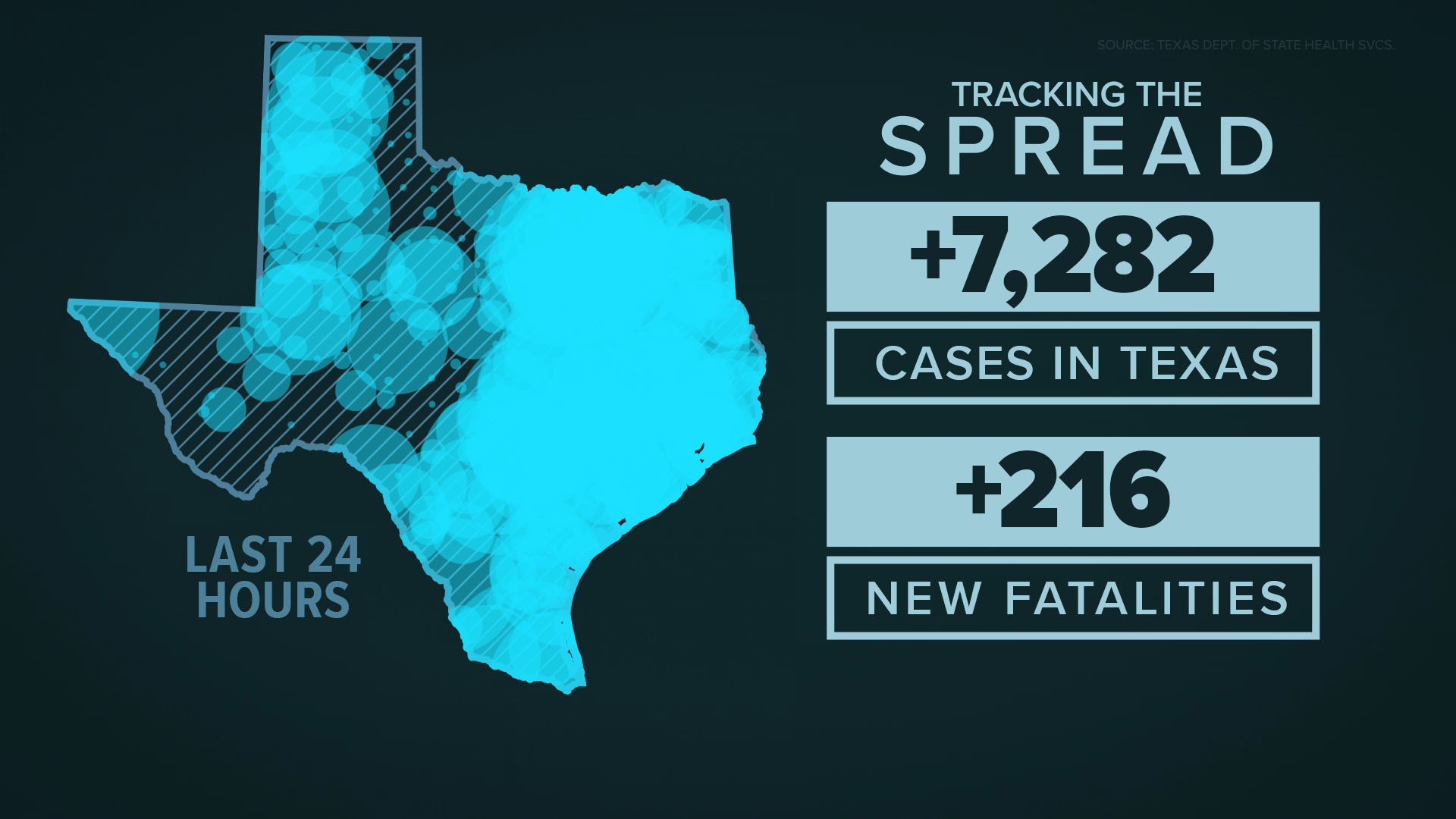HOUSTON — Texas' Department of State Health Services expects the state's positivity rate will be inaccurate for several days as it clears multiple COVID-19 case backlogs.
Governor Greg Abbott said last week DSHS had brought in a “data team” to determine why the positivity rate of COVID-19 rose to record levels in the first two weeks of August, reaching 24.5 percent on August 12.
Positivity rate is the "percent positive:" the rate is the percentage of people who test positive out of all the people tested in a given time span. Texas' elected officials frequently reference this figure to determine when we can return to "normal," such as re-opening schools or bars and restaurants to full capacity.
Houston mayor Sylvester Turner has repeatedly said it needs to be five percent or less for a sustained period of time.
In July, the seven-day average rate got as high as 17.43 percent (July 16) and as low as 12.05 percent (July 31).
But in the first week of August, it shot up, reaching 19.41 percent in seven days.
DSHS press officer Lara Anton said a system upgrade allowed them to increase the amount of results the state can receive in a day, up from around 48,000 a day to more than 100,000 a day.
Before the upgrade, results over that roughly 48,000 limit coming into the system we not being counted on that day.
DSHS said they are taking cases from that backlog and adding them to the state's overall total, not to the daily case reports.
In addition, the state uncovered multiple backlogs from labs, including Quest Diagnostics, and Walgreens. Quest processes the tests from one of the city of Houston's mega sites.
"Several commercial laboratories have submitted backlogs of test results to DSHS this week. As the backlogged test results are added to the electronic reporting system, some counties are receiving notification of COVID positive results that were previously diagnosed but not reported to the local health department at the time the test was completed. For this reason, the statewide confirmed case counts and some county case counts will include some older cases over the next few days. DSHS works daily with laboratories to facilitate reporting to ensure local jurisdictions receive timely laboratory reports. Patients were notified at the time of diagnosis through a separate process," DSHS wrote on its dashboard.
Anton said the Walgreens backlog accounts for roughly 59,000 tests statewide. She said the Quest backlog accounts for about 350,000 tests.
"We have worked closely with state officials in Texas on our COVID-19 testing efforts, and immediately assessed the reporting issue when we learned of it on Monday.
There was a discrepancy between state requirements for coding and what was being delivered. Our physician network partner, who is responsible for reporting COVID-19 test results to the state, has been working diligently with local officials and the problem has been rectified.
This issue in no way affected the accuracy of the test results or the timely reporting of test results to patients," a Walgreens spokesperson said in a statement.
Quest issued the following statement on Monday: "We have completed testing and reporting results of outstanding test specimens associated with the prior, recent surge. We now have ample capacity to accommodate incoming orders."
Anton said now local health departments will need to reconcile these backlogs, and determine how many of these cases they had already received in order to eliminate duplicates.
Anton said local health departments decide how to report new cases that they had not yet received. Some, like Fort Bend County, may "break out" the number of truly new cases in a single day from the cases reported that day from the backlog.
Others, she said, may choose to report them all as new cases, which could have a major impact on the state's overall positivity rate.
She said DSHS has issued guidance on how to report backlogged cases, but said that ultimately, the local health departments would choose how to decide because of Texas' laws.
Anton also noted the increase in the number of new tests in the last three days is a product of the backlog being cleared through.
“Bottom line is this: for another few days, there could be some numbers adjustments that are coming in, but the problems underlying that have been solved," Gov. Abbott said in Fort Worth on Thursday.
Anton said she expects the backlogs to be fully processed by the end of the week.

